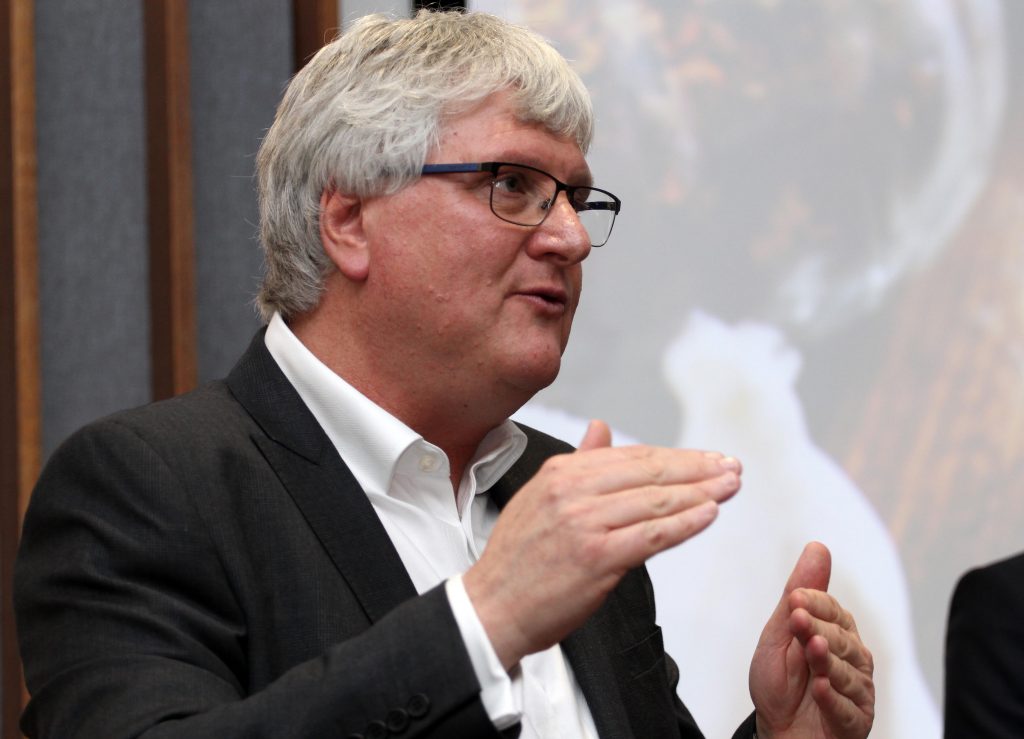You can also listen to this podcast on iono.fm here.
SIMON BROWN: I’m chatting now with Bernard Berson, Bidcorp CEO. Results for six months to end-December. Revenue up 28.1%, headline earnings per share up 45.5%, and an interim cash dividend of R4.40 per share.
Bernard, I appreciate the time this morning. You make the point in your results that demand has actually got back to the pre-pandemic level. Broadly folks are out there and eating out of the house a whole lot more than perhaps many had thought.
BERNARD BERSON: Morning, Simon. Yeah, that’s correct. We’ve seen very strong demand out there in all geographies, and people seem to have got back to their old habits and add a little bit more. So we’re very positive about the trend we see in the market with people eating out.
SIMON BROWN: You mentioned demand is there. Have you seen changing patterns in terms of customers? I’m thinking particularly of South Africa, where of course you’ve got the load shedding, which is either Stage 4 which is bad, or Stage 6 which is debilitating.
BERNARD BERSON: Yes, it’s very difficult to detect across the full portfolio what the trends are. But in South Africa there’s almost a theory that says maybe eating out is being better at the moment because people know if they go and eat out they at least get a hot meal because they’re in a shopping centre with a generator or a restaurant that has standby power or whatever, or gas or something. Certainly now in South Africa that’s right across the board.
SIMON BROWN: In terms of growth I mentioned that revenue is up 28%, headline earnings just over 45%, [showing] good growth in margins in the business. Is that something that is sustainable or perhaps even something [where] perhaps you could pick up a bit on the margins?
BERNARD BERSON: The margins are probably at almost optimal levels. I never want to say they’re at optimal levels, but we think that’s more or less correct. There are some pockets where there could be improvement. The six-month period is cycling through some Covid-impacted results in the year before, so we’re not really comparing apples with apples and there are some things that aren’t really totally comparable. So as we’ve alluded to, we don’t expect the growth rate of 28% to continue as we start cycling through non-Covid-impacted months. But we’re still seeing very strong growth out there. As of the end of last week, the growth in January/February maintained the momentum across all geographies. So we really aren’t seeing any dramatic slowdown in the way customers are spending.
SIMON BROWN: Okay. That was important. I was going to ask about that. We’ve had seven weeks now since the period end [and it’s] still maintaining. Have you been picking up market share again, going through the numbers? I don’t know your competitors, and obviously you operate in a number of different geographies, but is your sense that you’ve gained market share?
BERNARD BERSON: Look, our sense is that we have grown market share, but we’ve got no way of proving it. So I think we’d be a little bit arrogant if we definitively said we’re picking up market share. But it’s unlikely that all the growth is purely organic market growth. I just don’t believe that the markets we operate in are all growing at that rate. Our best estimate is the 25% real currency, constant currency turnover increase is roughly 60% inflation, 40% volume growth, which means there’s a 10% growth, which is a big number. So we do attribute some of that growth to the fact that our teams are doing a great job and are picking up some market share.
SIMON BROWN: You mentioned inflation. Obviously we all know about food inflation – broadly inflation, but food inflation as well. You obviously managed to pass that on to your customers. Are you seeing inflation sort of starting to maybe come down a bit in the food space, or is it still quite large? Again, I appreciate there are different geographies, but certainly my understanding is that broadly we’ve seen food inflation globally.
BERNARD BERSON: The trend absolutely is that the rate of inflation is decreasing. We’ve passed the peak and it’s starting to come down, and certain commodities are coming down very, very quickly – like cooking oil, for example. That is probably 50% of the price it was 11 months ago after the Ukraine war. So that’s come off very quickly. But across the full basket we’re still seeing inflation, but it is at lower rates than for the past year. I don’t think we’re going to get into a deflationary environment, but we hopefully are going to get into a more acceptable moderated level of inflation
SIMON BROWN: And supply chains? That was one of the oddities, perhaps, of the pandemic The oddity was that it persisted longer than many expected. Have supply chains returned back to being well-oiled machines?
BERNARD BERSON: They are far better than they were. They’re not back to that slick just-in-time situation that existed pre-Covid, but they’re a lot better than they were a year or two years ago. They’re relatively reliable. Shipping rates have come down dramatically. In fact they are below Covid levels now to ship a container around from most destinations. So we’re seeing it unwind relatively quickly and normality come back into it. That will bring down inflation as well.
My feeling is we’re going to get into a more normalised trading period for the next while.
SIMON BROWN: I take your point, exactly that. We are returning back to normal. Bernard Berson, Bidcorp CEO, I appreciate the early morning.
Listen to the full MoneywebNOW podcast every weekday morning here.

